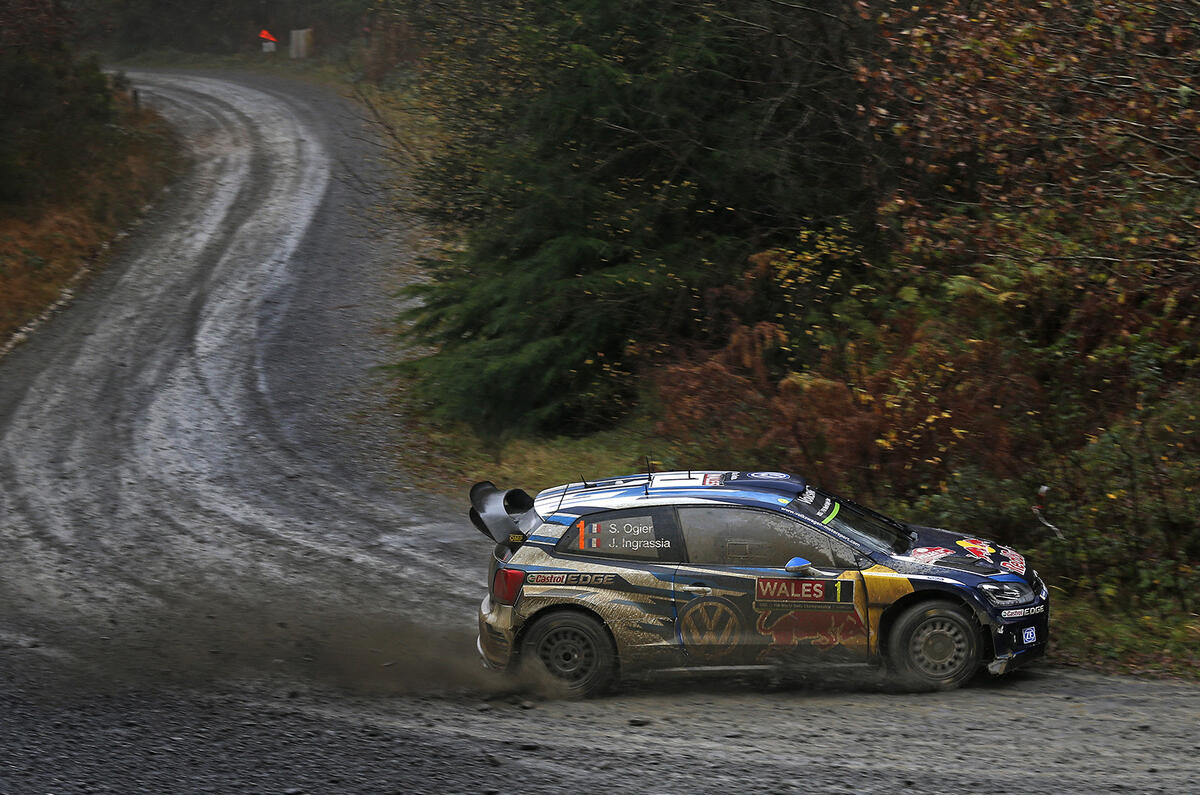Like hundreds of thousands of motorsport enthusiasts, I have fond memories of standing in muddy Welsh forests watching rally cars blaze past.
This week, the future of forest stage rallying is vulnerable to a severe body blow that could prove fatal to the sport’s future in Wales.
The forest rallies are predominantly held on gravel tracks on land administered by Natural Resources Wales (NRW), which is a Welsh Government agency.
To save each rally organiser the hassle of having to negotiate hire of the tracks with NRW, the Motor Sports Association strikes a ‘Master Agreement’ that sets the price of accessing the forests for all events.
The previous Master Agreement expired in December 2015 and the MSA forged new agreements with the bodies controlling the forests in England and Scotland.
The NRW, however, has tried to negotiate a deal that it regards as more favourable, and it is one that could kill forest rallying in Wales.
Rally cars wearing knobbly gravel tyres disperse the gravel on the tracks and occasionally cause potholes to appear in the surface. In 2015, the MSA paid a total of £339,000 to the NRW for road repairs in the Welsh forests.
However, the NRW claims that its costs for reinstating the roads after rallies in 2015 actually totalled £655,000 and it is currently negotiating with the MSA on the firm basis that it will seek reimbursement of the total cost of road repairs.
Ariel Nomad versus rally car at Sweet Lamb in Wales
This could in effect mean a doubling of Welsh forestry charges, a cost that would have to be passed on to competitors – and which is likely to prove unpalatable to many club rally drivers who enjoy their sport on relatively modest budgets. At the current rates, an average national rally can spend £20-25,000 on stage hire fees. Dividing that cost between 100-plus entrants makes it viable, and the popularity of rallying in the Welsh forests usually ensures healthy entry lists for events.
The NRW intends to introduce its proposed new fee on 1 June, but the MSA is battling to convince the body that rallying brings myriad benefits - many of them financial - to the areas it visits.
When a major forest stage rally comes to town, hotels, campsites and restaurants are booked up, while shops and petrol stations do a roaring trade. The MSA’s calculations show that with 10 prominent forest events running in Wales, the income generated equates to £4.45million. That doesn’t include Wales Rally GB, the jewel in the crown, which alone is said to create £10m for the Welsh economy.
Of course rallying should pay its way to assist with the upkeep of the gravel forest roads it uses - no-one in the sport is disputing that - but the MSA’s argument is that the fee must be realistic and the other benefits must be taken into account.




Join the debate
Add your comment
Club Events...
How much rallying brings to the Welsh economy is hard to evaluate, but I honestly think people are being optimistic in the sums they are coming up with. Other leisure activities which use the forests, such as MTBing probably bring as much money in, and they don't damage the forest roads.
Welsh Forest Rallying
Sad for local business, but if the NRW are that short-sighted, they will have to answer to the business community.
There are plenty of other areas in the country which will be keener to do business with the MSA.